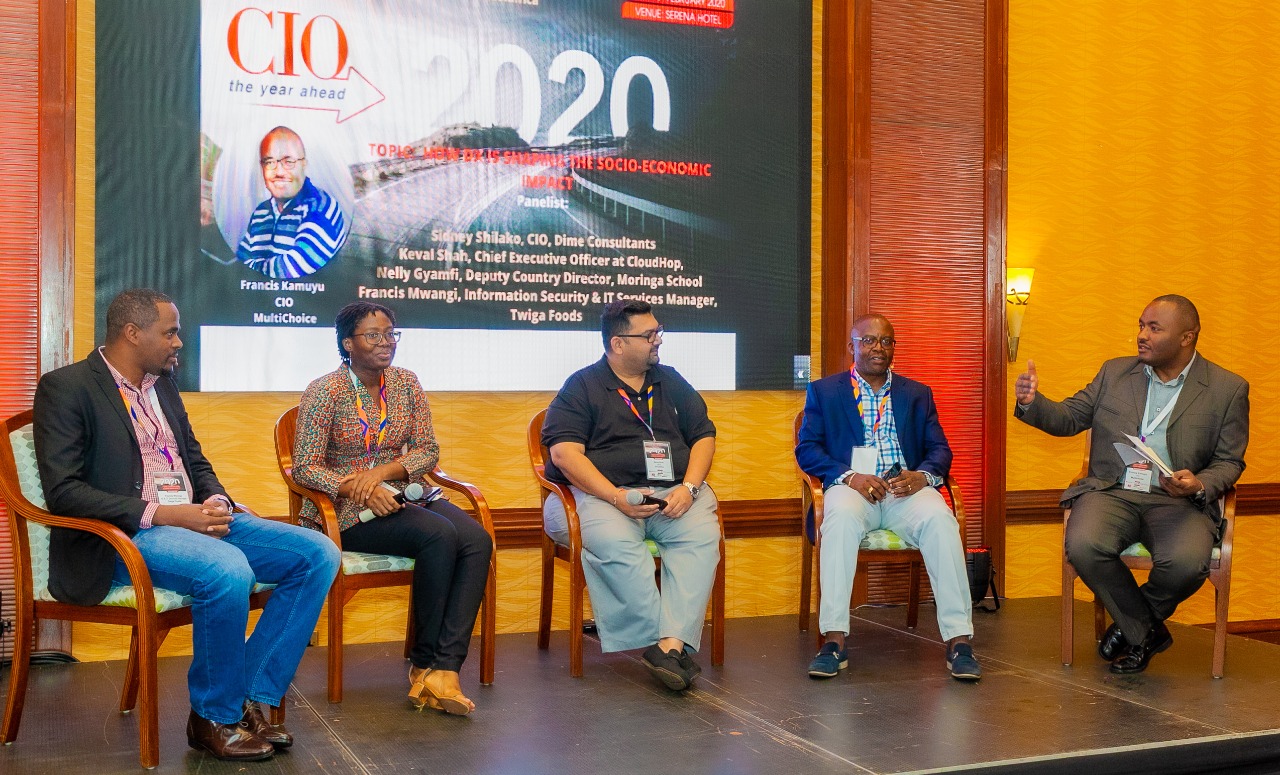advertisement
How does digital transformation shape the socio-economic ecosystem?
Digital transformation generated a fierce debate among IT industry policy-makers, converged at the #TheYearAhead Forum hosted by CIO East Africa…

Digital transformation generated a fierce debate among IT industry policy-makers, converged at the #TheYearAhead Forum hosted by CIO East Africa at the Serena Hotel in Nairobi, with the most profound concern being its impact on the society.
During a panel discussion, moderated by Francis Kamuyu, CIO MultiChoice, industry leaders appreciated disruption following its shift and most importantly its effects on societies particularlt on issues such as jobs, education, wages, inequality, health, resource efficiency and security among others.
“At Twiga Foods we’ve adopted the use of IoT technology to help farmers identify the levels of moisture and temperatures to help them (farmers) monitor crops,” said Francis Mwangi, Information Security and IT Services manager at Twiga Foods who spoke at the panel.
advertisement
Nelly Agyemang-Gyamfi, Deputy County Director, Moringa School who was among the session panelists opined that they are working with industry to up-skill individuals for the upcoming wave of change by conducting regular research into upcoming industry trends and needs. The findings from these are then used to train the workers of the future.
She also mentioned that Moringa School has partnered with a number of organizations to re-skill non-technical workers so that businesses can bring their staff along on the journey towards digital transformation instead of laying off large numbers of individuals.”.
The digital revolution was also said to be creating new roles (such as search engine optimization managers and social media account managers) and new types of organizations like cloud computing providers and social media agencies. Also on the uprise due to the DX include digital security and data science.
advertisement
“The impact of digitization has acted as a catalyst for employment growth in the wider global economy,” noted Keval Shah, CEO CloudHop.
Today, however, the question of whether technology creates or destroys jobs is gaining momentum.
The panel agreed that the shift poses an opportunity and challenge just in equal measure, depending on how individual organisations and/ or businesses chose to leverage on its impacts.
advertisement
Some jobs as they averred, will disappear, some will collaborate with machines and algorithms (DX tools) while some are completely new or will remain largely untouched.
A recent report by the World Economic Forum however stated that digital initiatives have shown the potential to deliver an estimated 26 billion tonnes of net avoided CO2 emissions by 2025. To ensure this potential value is realized and scaled, the report recommends an overcoming for hurdles relating to the acceptance of new, circular business models, customer adoption and the environmental impact of digital technology itself.